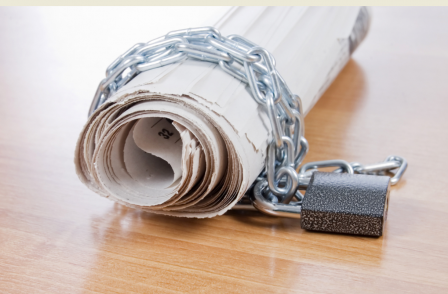
The presidents of the World Editors' Forum and the World Association of Newspapers have both urged Prime Minister David Cameron to abandon plans for statute-backed regulation of the press.
The joint letter to Cameron follows similar concerns being raised by the Committee to Protect Journalists.
It states: "Any statutory regulation of the press in the United Kingdom will have a ‘chilling effect’ on press freedom in other countries, particularly in those where oppressive regimes currently, or would likely use statutory regulation to silence independent voices or those critical of overnment."
World Editors Forum president Erick Bjeraber and WAN-IFRA president Jacob Mathew say in their letter that they are "extremely disappointed and seriously concerned that the UK Government has ignored the numerous concerns raised by press freedom and human rights groups worldwide by abandoning more than 300 years of press freedom in the UK and replacing a self regulatory system with one underscored by statutory regulation".
They note that under the terms of the proposed Royal Charter which will underpin the new press regulator, any "relevant publisher" who does not sign up to the regulator could be liable for exemplary damages or "alarmingly high libel costs".
They say: "We hold grave concerns that even if a publisher were to win a case, they may have to pay costs if not signed on to the 'approved regulator'."
Echoing concerns by UK regional newspaper trade body the Newspaper Society, the letter says that the proposed arbitration service for settling civil claims to be included in the new proposed regulator will "inevitably lead to more claims against publishers".
The letter adds: "Disputes currently settled easily without cost to either side could become major compensation claims for even the smallest of errors. Furthermore, the powers invested to this new body will be greater than those afforded the courts, and more extensive than any press regulator in the western world.
"The effect this will have on large and small publishers alike will be devastating – it will lead to a culture of self-censorship and have a marked effect on investigative journalism."
The two bodies have requested a meeting with Cameron at his "earliest convenience" and said they believe that the issues which prompted the Leveson Inquiry "should and are being dealt with by the criminal justice system".
Ministers defended the press regulation plan before the House of Commons culture committee today.
Committee chairman John Whittingdale said the cross-party agreement was "fully opposed by the entirety of the British newspaper industry" and it was "hard to find" a publication which was committed to sign up to the new regulatory regime.
Culture secretary Maria Miller said it was important to "take both the public and the press with us" and claimed that newspapers had been fully involved in talks around setting up the regulator.
Asked what would happen if no recognised regulator was set up, Miller said it was a choice for the industry.
"Leveson was not putting forward a system of compulsion to be part of a self-regulatory body," she said.
But she said the incentives to join a recognised regulator were "strong and compelling".
Tory Philip Davies said it was a "farce" that the new system was being established but that the newspapers were not willing to sign up and accused Miller of being "in denial".
He asked: "If the newspapers fail to sign up are you suggesting this is the end of the process, whether they sign up or not, or if they don't sign up you are going to come back with some different solutions or different proposals?"
Minister for Government Policy Oliver Letwin said: "It doesn't seem to me in any way sensible to approach a very complicated and difficult issue by working out first what will happen if what you hope and intend and expect to happen doesn't happen.
"You have to start by trying to make it happen."
Tory Tracey Crouch asked if there were "any free speech campaign groups in favour of these proposals".
Letwin said it was a "workable system" and added: "I believe that there are no chilling effects whatsoever and no control of any kind at all over what is written in the press, as opposed to the creation by the press of a regulator that provides ready access to those who seek redress against what has been written, after it has been written."
In response to questioning from former culture secretary Ben Bradshaw, Letwin said more than one regulator could be set up under the new regime, possibly covering regional papers.
"Right from the beginning, as Lord Justice Leveson made clear in his report, it's been the intention not to specify how many regulators might seek recognition under the charter," he said.
Deputy Labour leader Harriet Harman told the Committee the new regulatory system should be established "as soon as possible".
Email pged@pressgazette.co.uk to point out mistakes, provide story tips or send in a letter for publication on our "Letters Page" blog







